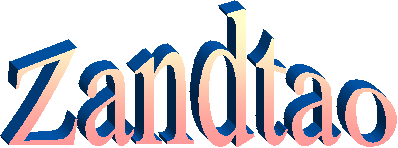



|

|
 |
| Pre Iran-Iraq war |
|
The key figure in this understanding of the Iraq situation is Saddam Hussein. As the West sited Saddam as a tyrant and a causer of atrocities then we need to understand how such a man became the leader of Iraq. Significant in this we need to look at his relations with the West, especially the US. Have these relations been consistent throughout? Has Saddam been consistent throughout? To begin with here is a Yahoo description of Saddam's rise to power but it makes no mention of his connections with the US, however the description is consistent with what I will describe. The fact that it doesn't mention any connections is significant in terms of its depth as officially connections were recognised. Here (1, 2, 3, 4, 5, 6, and 7) are sources that are not mainstream. Can the truth ever be mainstream? Not usually, quite simply because the corporatocracy through its media corporations and government controls the flow of information. If you cannot see this control then the question of sourcing is fruitless because of bias. If the source is not mainstream it must be biased yet mainstream is corporatocracy-controlled (see here for discussion on media). The view that sources need to be acceptable mainstream precludes any possibility of discerning the truth, persuing truth in such a fashion will never find the truth yet there are sufficient people speaking the truth here - if you are open enough to read it. What type of man was Saddam? The issue is not really what type of man he was during and after the first Gulf War as it was globally recognised that he was a tyrant and should not be in office. The references I have given show that he was supported by the US prior to the 1st Gulf War, so what kind of man was he before then? According to Yahoo:- "In 1956, he took part in an unsuccessful coup attempt against King Faisal II of Iraq. In 1959, Hussein and other Baath supporters tried to assassinate General Qassim. In 1963, the Baath Party assassinated General Qassim. Hussein returned to Iraq and became an interrogator and torturer for the Baath Party By 1973, Hussein was vice president of Iraq under President Bakr. Throughout the 1970s, Hussein consolidated his power. He placed many of his own family members and people from his hometown in important positions in the Iraqi government and military. He also utilized criminals to torture and murder people he perceived as threats. In 1979, President Bakr resigned under pressure from Hussein, who then became president. Immediately after his succession, Hussein called a Baath Party meeting and had all of his opposition systematically murdered. As president, Hussein continued to reinforce his power base by enlarging security forces and employing family members in the government. One 1984 analysis indicated that 50 percent of Iraqis were either employed by the government or military or had a family member who was -- thus making the population intimately connected to and dominated by Hussein." In this mainstream description (Yahoo) Saddam has taken part in assassinations, successfully or otherwise, systematically murdering opposition when he got into power. At best these are not the actions of a democrat, but certainly not a man that a democratic government should be associated with. Please note that these dates are pre-Iran-Iraq war. For people who wanted Saddam removed from office by war, all of the above adds credence to their case. What I note however is that there was no significant change in behaviour throughout his life, he was consistently tyrannical. Saddam and the CIA To look into Saddam's connections with the US I am going to use the UPI source. According to wiki (lookup United Press International) UPI has a mainstream history but is now owned by News World Communications ("In 2000, UPI was purchased by News World Communications, an international news media company which was founded in 1976 by Unification Church leader Sun Myung Moon"). Does this mean they are biased? This UPI piece is backed up by unnamed official sources. "Saddam was seen by U.S. intelligence services as a bulwark of anti-communism and they used him as their instrument for more than 40 years, according to former U.S. intelligence diplomats and intelligence officials." "His first contacts with U.S. officials date back to 1959, when he was part of a CIA-authorized six-man squad tasked with assassinating then Iraqi Prime Minister Gen. Abd al-Karim Qasim." This Iraqi PM came into power through a bloodbath but the US had good relations with him as he was part of an anti-Soviet pact. But when he renounced this pact he became a target. Saddam was then financed by US agencies until in 1963 the assassination was successful. The US supplied the Baath party with names of communists who were then assassinated - presumably by the secret police that Saddam became head of. "Saddam, in the meantime, became head of al-Jihaz a-Khas, the secret intelligence apparatus of the Baath Party." In this article (2 above), there is further corroboration of the CIA working with Saddam in his rise to power, including named quotes. These add nothing to the argument only giving more detail of the duplicity of the US in that they created the monster, and Blair then used the moral high ground to justify war. Significant about this article (2 above) is that it is part of a description of Richard Helms who in his time as head of the CIA masterminded many such CIA interventions. Again we have the pattern of history telling us of the lie of the land, the way the corporatocracy works. Here is what the BBC world affairs correspondent, Alan Little, wrote in January 2003:- "The coup that brought the Ba'ath Party to power in 1963 was celebrated by the United States. The CIA had a hand in it. They had funded the Ba'ath Party - of which Saddam Hussein was a young member - when it was in opposition. US diplomat James Akins served in the Baghdad Embassy at the time. "I knew all the Ba'ath Party leaders and I liked them," he told me. "The CIA were definitely involved in that coup. We saw the rise of the Ba'athists as a way of replacing a pro-Soviet government with a pro-American one and you don't get that chance very often. "Sure, some people were rounded up and shot but these were mostly communists so that didn't bother us"." From "Out of the Ashes, The Resurrection of Saddam Hussein", by Andrew and Patrick Cockburn, published by Verso, 2000. "On February 8, a military coup in Baghdad, in which the Baath Party played a leading role, overthrew Qassim. Support for the conspirators was limited. In the first hours of fighting, they had only nine tanks under their con- trol. The Baath Party had just 850 active members. But Qassim ignored warnings about the impending coup. What tipped the bal- ance against him was the involvement of the United States. He had taken Iraq out of the anti-Soviet Baghdad Pact. In 1961, he threat- ened to occupy Kuwait and nationalized part of the Iraq Petroleum Company (IPC), the foreign oil consortium that exploited Iraq's oil. In retrospect, it was the ClAs favorite coup. "We really had the ts crossed on what was happening," James Critchfield, then head of the CIA in the Middle East, told us. "We regarded it as a great victory." Iraqi participants later confirmed American involvement. "We came to power on a CIA train," admitted Ali Saleh Sa'adi, the Baath Party sec- retary general who was about to institute an unprecedented reign of terror. CIA assistance reportedly included coordination of the coup plotters from the agency's station inside the U.S. embassy in Baghdad as well as a clandestine radio station in Kuwait and solicitation of advice from around the Middle East on who on the left should be eliminated once the coup was successful. To the end, Qassim retained his popularity in the streets of Baghdad. After his execution, his sup- porters refused to believe he was dead until the coup leaders showed pictures of his bullet-riddled body on TV and in the newspapers." Andrew and Patrick Cockburn are authors connected with Counterpunch and anti-war.com. Personally I would usually believe what these sites say, they are clearly proclaiming a political line. Whilst all writers put forward a political line of sorts, I would not use these sources to argue with rationalists simply because rationalists would label them as biased before even reading them. However the Cockburns quote sources that state that the CIA were heavily involved. I am interested in this quote because the authors describe the reasons for the CIA support of the Baath Party:- 1) "He [Qassim] had taken Iraq out of the anti-Soviet Baghdad Pact." 2) Qassim had "nationalized part of the Iraq Petroleum Company (IPC), the foreign oil consortium that exploited Iraq's oil." I think it would be hard to find official sources that would admit that the cause of CIA support for the Baath party is the need to fund the MIC or the appropriation of oil, although above James Akins, US diplomat in Baghdad Embassy, did say that the CIA were involved because they "saw the rise of the Ba'athists as a way of replacing a pro-Soviet government". In terms of what I am presenting it is the oil quote that most interests me. In this section there is clear evidence that throughout his life Saddam behaved as cold-blooded tyrant in or out of office. Because it suited the Americans to use him, they funded his party and brought him to power. And the motivations were not democratic, they were anti-communist with people killed as well as oil interests satisfied. Throughout this time of US support Saddam committed atrocities |
| Back to links table /Iran Iraq war |